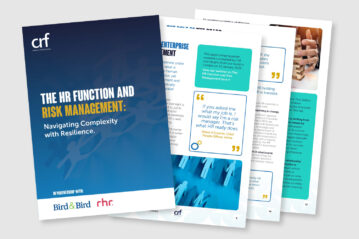Recently, our top UK-based leadership consultants Anna Barras, David Cumberbatch, Maja Egnell, David Langdon, Orla Leonard, Nick Twyman, and Olga Hypponen participated in a virtual roundtable to discuss leadership lessons they’ve learned over the past year and what leaders should focus on in 2025. Despite all the global twists and turns 2024 brought us, the consensus is that the leadership focus remains on actionable strategies for 2025, emphasising adaptability, emotional intelligence, and technological awareness.
Reflecting on 2024, what were the unexpected challenges or opportunities that emerged, and what lessons do you believe leaders should take from them?
David L.: The principle of ‘expecting the unexpected’ has been more relevant than ever. Leaders are tested in times of crisis, with some reacting with patience and others struggling with emotions. How leaders respond shapes organisational culture because once words are spoken, they cannot be unsaid.
Orla: Reflecting on both individual leaders and global events, I see the importance of understanding differing perspectives and practicing empathy. Stephen Covey’s advice to ‘seek first to understand, then to be understood’ is crucial now more than ever.
Anna: The evolution of hybrid work has been both a challenge and opportunity. Strong leaders must prioritise authenticity and trust, especially in remote settings. Additionally, during times of political unrest, those leaders who stood out intentionally acted in a reassuring and unifying way, which requires empathy and effective communication.
Nick: The year has been marked by geopolitical instability—conflicts in Ukraine and the Middle East and tensions in Taiwan. We are living in an era of ‘polycrisis,’ where leaders must navigate uncertainty with limited data, adjust resources, and spot emerging opportunities. A diverse range of perspectives is vital for making informed decisions.
In your view, which skills or strategies will be most critical for leaders in 2025?
David L.: Leaders will need to adopt a more holistic, flexible approach to strategy in response to changing global economics and political instability. They must be comfortable with making tough decisions and relying on a diverse network of thought partners.
Maja: In an increasingly polarised world, leaders must maintain emotional resilience and stay grounded. Focusing on self-care and personal sustainability will be critical for navigating turbulent times.
Olga: Key skills include humility—recognising limitations and the need for growth—and the ability to hold complexity without oversimplifying issues. Inclusivity and curiosity about others’ experiences will also be essential.
Anna: Leaders must embrace technological adaptability, particularly with AI and digital tools. Emotional intelligence and empathy are vital for employee well-being, whilst inclusive leadership fosters innovation. Agile decision-making and long-term sustainability should be top priorities.
Nick: Leaders will need a growth mindset and the ability to navigate complexity. They must make decisions based on imperfect data and maintain emotional intelligence, resilience, and self-awareness. Strategic decision-making will require leaders to balance execution with team engagement to ensure their organisations can manage change effectively.
What trends in technology, employee engagement, or organisational culture should leaders address to remain resilient in 2025?
David L.: The traditional psychological contract with employees is outdated. To retain talent, leaders must offer meaningful work and autonomy alongside a flexible approach to hybrid work models. Creativity and openness are key to meeting the changing needs of the workforce.
Olga: Maintaining flexibility in work practices is essential. Leaders should strike a balance between autonomy and opportunities for in-person collaboration, particularly for diverse groups like working parents and neurodivergent employees.
Nick: Leaders will need to be tech savvy, particularly in leveraging emerging technologies like generative AI. Sustainability will continue to be a key focus—not just for compliance but also as a potential source of competitive advantage. Additionally, leaders must be prepared to engage multigenerational teams and create an inclusive workplace culture.
David C.: The rise of AI will have a profound impact, much like the internet did in its early stages. Leaders must decide how to integrate AI tools whilst ensuring data security and training employees to understand its strengths and limitations. Ethical considerations around AI usage and data privacy will also be crucial.
Let’s Talk
To start your new leadership year off right, reach out to RHR by contacting Robert Abramo, head of business development.
For nearly 80 years, RHR has been a globally respected leadership consulting firm composed of behavioural scientists and practitioners dedicated to helping CEOs, board members, executives, business teams, and HR professionals master the art and science of leadership. RHR’s solutions use the combined power of psychology, business expertise, and the newest technologies to solve complex leadership challenges through world-class assessments and coaching and development programmes.
Visit www.rhrinternational.com for more information.













